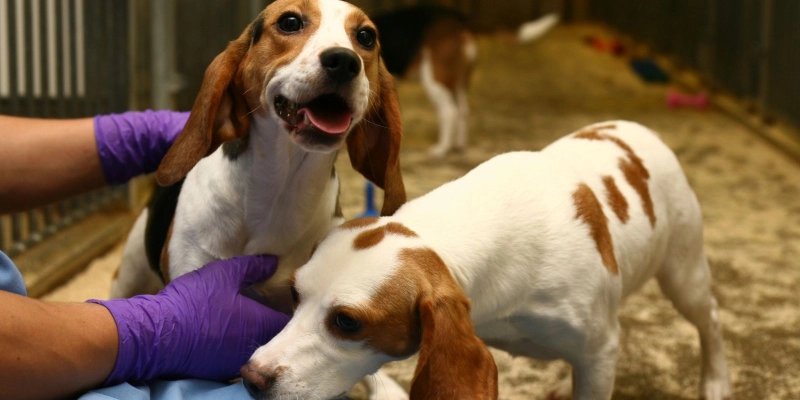St. Joseph’s Health Care London, a teaching hospital in Ontario, has officially stopped using dogs in its medical research. The move followed growing outrage after investigative journalists revealed disturbing details about experiments involving young beagles.
The Investigation That Sparked Change
The controversy began when the Investigative Journalism Bureau uncovered that beagle puppies, some just 10 months old, were being used in heart research. In these tests, the dogs were made to suffer induced heart attacks that lasted for hours. Afterward, they were killed so their organs could be studied.
Once these findings became public, many Canadians reacted with anger and disbelief. Images of the beagles spread quickly and fueled nationwide calls to end the use of dogs in labs.
Political Leaders Respond
Ontario Premier Doug Ford joined the public in condemning the experiments. He called the situation “heartbreaking” and suggested his government may consider banning research on dogs and cats altogether.
His comments gave the issue momentum and brought it directly into the political debate.

Oversight and Accountability in Question
This case also cast a spotlight on the Canadian Council for Animal Care (CCAC), the body that oversees animal testing standards. Critics, including ethicist Andrew Fenton from Dalhousie University, argued that the system lacks transparency. He stressed that without public accountability, abuses can go unchecked.
Why This Matters Beyond Beagles
While St. Joseph’s has ended its use of dogs, thousands of other animals—such as rodents, pigs, and monkeys—continue to be tested on in Canada.
Animal advocates argue that alternatives like computer simulations, human-cell models, and organ-on-a-chip technology could replace these outdated methods.
The beagle case is now a powerful reminder that society’s views on animal testing are shifting. What was once hidden inside labs is now being challenged in the open, with growing demand for cruelty-free science.
A Step Toward Broader Change
The decision by St. Joseph’s shows that public pressure works. But activists warn it’s only a first step. They want stronger laws that protect all animals from being used in experiments, not just companion species like dogs.
The message from this story is clear: Canadians are no longer willing to accept unnecessary animal suffering in the name of research. What happens next could reshape the future of animal testing across the country.
